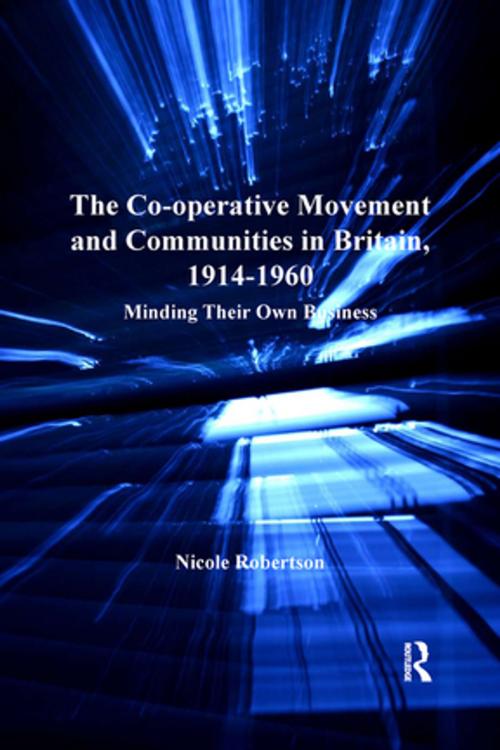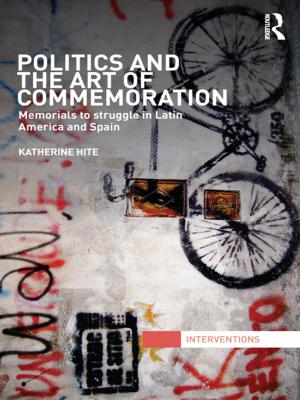The Co-operative Movement and Communities in Britain, 1914-1960
Minding Their Own Business
Nonfiction, History| Author: | Nicole Robertson | ISBN: | 9781317037231 |
| Publisher: | Taylor and Francis | Publication: | March 23, 2016 |
| Imprint: | Routledge | Language: | English |
| Author: | Nicole Robertson |
| ISBN: | 9781317037231 |
| Publisher: | Taylor and Francis |
| Publication: | March 23, 2016 |
| Imprint: | Routledge |
| Language: | English |
The co-operative movement has played a notable role in the retail, wholesale, productive, political, educational and cultural life of Britain. As a movement it has consciously represented consumer interests and has carried out work in the arena of consumer protection. However, its study has suffered relative neglect when compared to research into the Labour Party, trade unions and the wider politics of retail and consumption. This book reassesses the impact of the co-operative movement on various communities in Britain during the period 1914-1960, providing a comprehensive account of the grass roots influence of co-operatives during both war and peace. This is a national study with a local dimension. It considers how national directives and perspectives were locally applied, if indeed they were applicable within the context of individual societies. Each chapter focuses on a different aspect of the co-operative movement by examining various societies in England, Scotland and Wales. Particular attention is paid to the midlands, due to the movement's expansion here during the interwar period, with consideration also given to comparative developments in Europe. The author explores: the movement's relationship with other labour organizations; its cultural and social aspects (including the role sport played in co-operative societies); the politicization of the movement and local response to the formation of the Co-operative Party; the education of co-operators; what co-operative membership entailed and how co-operative ideology was expressed; the economic impact membership could have on families (including the provision of financial assistance and credit); and the co-operative movement's development alongside consumer activism. The book is a major national study of the growth of Co-operation during this crucial period of British social, economic and consumer history. Given the few modern scholarly works on Co-operation, it is a timely and much needed reassessment.
The co-operative movement has played a notable role in the retail, wholesale, productive, political, educational and cultural life of Britain. As a movement it has consciously represented consumer interests and has carried out work in the arena of consumer protection. However, its study has suffered relative neglect when compared to research into the Labour Party, trade unions and the wider politics of retail and consumption. This book reassesses the impact of the co-operative movement on various communities in Britain during the period 1914-1960, providing a comprehensive account of the grass roots influence of co-operatives during both war and peace. This is a national study with a local dimension. It considers how national directives and perspectives were locally applied, if indeed they were applicable within the context of individual societies. Each chapter focuses on a different aspect of the co-operative movement by examining various societies in England, Scotland and Wales. Particular attention is paid to the midlands, due to the movement's expansion here during the interwar period, with consideration also given to comparative developments in Europe. The author explores: the movement's relationship with other labour organizations; its cultural and social aspects (including the role sport played in co-operative societies); the politicization of the movement and local response to the formation of the Co-operative Party; the education of co-operators; what co-operative membership entailed and how co-operative ideology was expressed; the economic impact membership could have on families (including the provision of financial assistance and credit); and the co-operative movement's development alongside consumer activism. The book is a major national study of the growth of Co-operation during this crucial period of British social, economic and consumer history. Given the few modern scholarly works on Co-operation, it is a timely and much needed reassessment.















